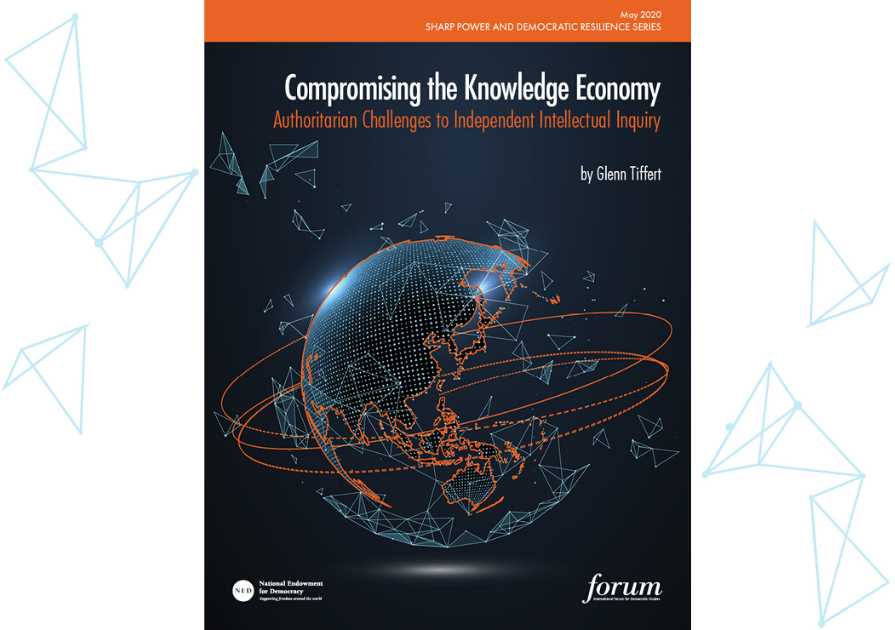Glenn Tiffert is a visiting fellow at the Hoover Institution, and a historian of modern China. His research has centered on Chinese legal history, the judiciary, and the genealogy of the rule of law in the People’s Republic of China. He works closely with government and university partners to strengthen resilience against authoritarian influence in the academic sector.
This report explores the compromising effects of sharp power on the civil society institutions that democratic societies depend on for knowledge production, including universities, publishers, and think tanks. Authoritarian regimes—China, Russia, Saudi Arabia, Turkey, and others—are exploiting unanticipated vulnerabilities in open knowledge economies to challenge free intellectual inquiry from the inside. By systematically coopting foreign partners, marginalizing or intimidating dissenters, controlling discourse, and globalizing their preferred narratives, these authoritarian regimes intend to discredit democracy, shore up their positions at home, and facilitate the projection of their power and interests abroad. Resisting the compromising effects of sharp power requires a communal awakening backed by heightened regulatory and institutional standards, major investments in employee training and compliance, robust monitoring, and the fortitude to say “no” to authoritarian influence.
Intellectual freedom flourishes only so long as we sustain and invest in the ecosystem that supports it, and that ecosystem is prone to exploitation and despoilment by those with incompatible agendas.
KEY IDEAS
Recent developments in the knowledge economy—intensifying marketization, the rise of online platforms, and populist critiques of the authority and legitimacy of many bodies of knowledge—have impinged upon the robust and open competition of ideas that democratic societies depend on for renewal.
Assaults on intellectual freedom in authoritarian settings start at home, but their reach is increasingly global. Regulatory strangulation is shrinking space for academic freedom in countries such as Hungary and Russia, where it has impacted operating licenses or accreditation for universities with links abroad. The Chinese Communist Party under general secretary Xi Jinping has unleashed a sweeping intensification of ideological discipline that has caused the climate for free inquiry and expression in the People’s Republic of China (PRC) to progressively deteriorate. Driven by Xi’s exhortations, the PRC is pressing its ideological offensive abroad, impacting foreign academia, publishers, and NGOs.
When democratic institutions that are integral to an open knowledge economy, such as universities and publishers, partner with entities based in authoritarian states, they expose themselves to perils that traditional due diligence and risk management frameworks were not designed to negotiate. Most fundamentally, these institutions cannot assume that their partners share their core values.
Authoritarian influence and interference are seeping into the cracks opened by marketization, technological disruption, and inequality, and the COVID-19 pandemic has only heightened the vulnerability of democracies. Responding to this challenge will require a difficult change in mindset equal to the changed environment.
DOWNLOAD THE REPORT

No comments:
Post a Comment